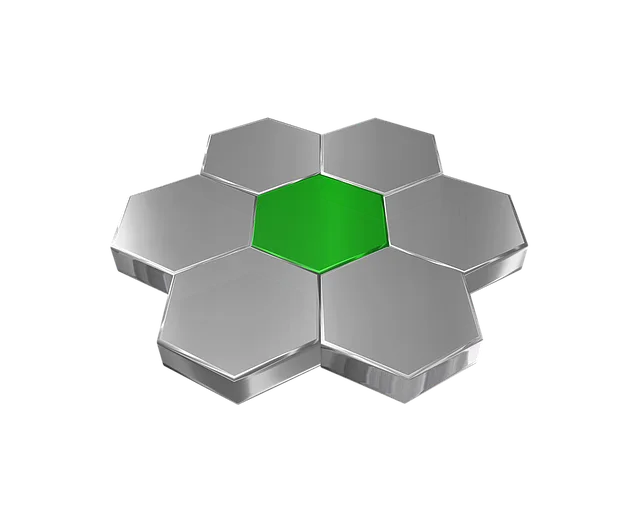Reiki therapy is a integral aspect of holistic health practices that harmonizes physical, emotional, and spiritual well-being. By channeling universal energy through a practitioner's hands, Reiki promotes deep relaxation and supports the body's natural healing processes. This non-invasive technique complements various treatments, including kratom, a botanical supplement from Southeast Asia known for its pain-relieving and mood-enhancing effects within holistic health practices. The combination of Reiki with kratom can amplify their individual benefits, offering a potent and synergistic approach to holistic health that addresses the totality of health concerns. This method leverages energy work alongside natural compounds to enhance self-regulatory and healing capacities, providing individuals with a balanced and vibrant state of well-being through alternative healing methods. It's important to approach such treatments under the guidance of qualified professionals to ensure safety and effectiveness within holistic health regimens.
Embark on a journey into the realm of holistic wellness with Reiki therapy, an ancient healing practice that balances your energy for optimal health. This article unveils the transformative power of Reiki and its synergistic effects when paired with kratom, a natural remedy renowned in holistic health circles. Discover how to seamlessly integrate this therapeutic touch into your daily routine for a more balanced and harmonious self.
- Unlocking Holistic Health: The Healing Touch of Reiki Therapy
- Reiki and Kratom: Synergizing Natural Remedies for Enhanced Well-being
- Integrating Reiki into Your Lifestyle for a Balanced Self
Unlocking Holistic Health: The Healing Touch of Reiki Therapy

Reiki therapy stands as a cornerstone in the realm of holistic health practices, offering a gentle yet profound approach to well-being that complements various forms of treatment, including the use of kratom for those who incorporate it into their holistic health regimen. This energy-based healing method channels a universal life force energy through the hands of a trained practitioner into the patient’s body, promoting relaxation and facilitating the body’s natural ability to heal itself. The touch of Reiki is not merely a physical experience but also an emotional and spiritual one, addressing not just the physical symptoms but also the underlying stress or anxiety that often accompanies illness or discomfort. This holistic approach aligns with the principles of holistic health, which emphasize the interconnectedness of the mind, body, and spirit in maintaining health and well-being. Kratom, when used responsibly within this context, can potentiate these effects by offering additional support in managing pain and enhancing the body’s homeostatic balance, making it a valuable tool for those seeking comprehensive care options.
In incorporating Reiki therapy into holistic health practices, individuals can expect to experience a deep sense of calm and centeredness. This state of being allows for a more effective healing process, as the body is not distracted by external stressors or internal chaos. The practitioner’s focused intention during the session helps to identify and address energy blockages or imbalances that may be causing discomfort or illness. For those engaging with kratom as part of their holistic health journey, Reiki can complement its effects by promoting a more harmonious energetic state, further supporting the body’s innate healing processes. This synergy between Reiki and kratom can offer a potent combination for individuals looking to explore alternative methods of care that respect and enhance the body’s natural capacity for self-healing.
Reiki and Kratom: Synergizing Natural Remedies for Enhanced Well-being

Reiki, an ancient Japanese healing technique, has long been recognized for its role in holistic health practices. It aims to establish a harmonious balance within the individual by channeling universal energy through the practitioner’s hands, promoting relaxation and facilitating natural self-healing processes. This form of therapy is complementary, meaning it can be used alongside other medical treatments. In recent years, Kratom, a botanical supplement derived from the leaves of Mitragyna speciosa, has gained attention in holistic health circles for its potential wellness benefits. Similar to Reiki, Kratom interacts with the body’s natural systems, particularly the opioid receptors, to alleviate pain and elevate mood, without the negative side effects associated with pharmaceuticals. The synergy between Reiki therapy and Kratom lies in their shared focus on holistic health. Users often report that integrating these practices can lead to a more profound state of well-being, as they address both physical and emotional aspects of health. For those seeking an alternative approach to wellness, the combination of Reiki’s energy work with Kratom’s natural compounds may offer a powerful dual therapy, enhancing the body’s innate capacity for self-regulation and healing. It is important, however, to approach such integrative practices responsibly and under the guidance of qualified professionals to ensure safety and efficacy.
Integrating Reiki into Your Lifestyle for a Balanced Self

Reiki, an ancient Japanese healing technique, has gained significant popularity in modern holistic health practices. It is a form of energy healing that aims to restore balance and well-being by channeling universal life energy through the practitioner to the recipient. Integrating Reiki into your lifestyle can be a transformative experience, offering a harmonious complement to other wellness strategies, including the use of kratom where appropriate. Kratom, a naturally occurring substance from Southeast Asia, has been traditionally used for its various health benefits and can synergistically support holistic health initiatives. Reiki sessions encourage deep relaxation, which can enhance the efficacy of kratom by allowing its effects to be felt more fully. This form of energy work is non-invasive and adaptable, making it suitable for a wide range of individuals seeking to align their physical, mental, and emotional states. By incorporating Reiki into your wellness routine, you may find a heightened sense of calm and clarity, which can positively influence your daily activities and overall quality of life. The practice of Reiki encourages the body’s innate ability to heal itself, aligning with the holistic health philosophy that emphasizes the body’s capacity for self-regulation and recovery. When combined with kratom’s potential benefits, this approach can create a powerful synergy for those committed to maintaining a balanced self. Regular Reiki sessions, alongside thoughtful kratom usage, can be a key part of a sustainable holistic health regimen that promotes inner peace and vitality.
holistic health, reiki therapy, integrative wellness, kratom benefits, balanced lifestyle, natural healing
In conclusion, Reiki therapy emerges as a harmonious complement to the holistic health practices that can be enriched by incorporating kratom. The interplay between these therapeutic approaches offers individuals a pathway towards achieving and maintaining a state of equilibrium and well-being. By integrating Reiki into your daily routine, you can harness the full potential of natural healing methods, ensuring that your lifestyle supports a balanced self. Embracing holistic health with kratom and Reiki therapy can lead to a more profound sense of inner peace and vitality, fostering an improved quality of life for those who seek it.






